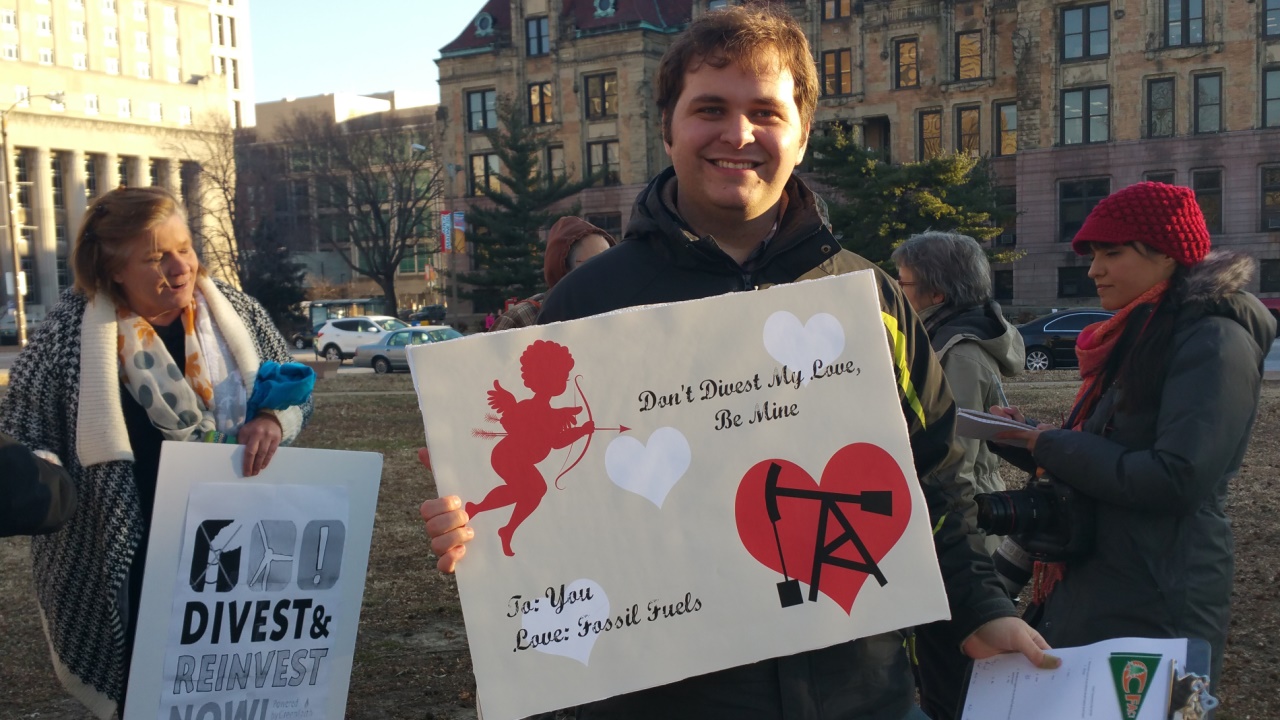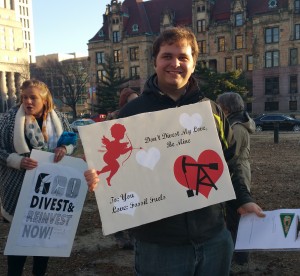Last week was promoted by the left as Divestment Week. According to them, there were massive protests all across the nation calling for companies and individuals to divest from fossil fuels because of the “huge” threat they supposedly pose to the future of the earth. CFACT decided to counter protest the divestment march that was held at Saint Louis Missouri. CFACT was very surprised to discover that the size of the divestment protest in Saint Louis was greatly over exaggerated, much like the supposed threat fossil fuels pose to the environment.
What was marketed as a massive protest against fossil fuels turned out to be a meager demonstration. Instead of the common image of hundreds of people demonstrating against fossil fuels, less than a dozen people showed up.
CFACT talked to the protesters, and their main message was the United States needed to stop using fossil fuels to protect the future of the earth. When asked about the impact the removal of fossil fuels would have on the economy of the United States, they said it was something that had to be done regardless of the cost to our economy. They also believed the only viable alternatives to fossil fuels were green sources of energy, like wind and solar energy. When asked about other alternatives, like nuclear energy, they said they should be phased out too, just like fossil fuels.
Another theme CFACT picked up from the divestment protesters was their belief there needs to be more regulation to reduce the use of fossil fuels in the United States. One of the protesters said “There needs to be more regulations to protect the environment. I know there already regulations, but they aren’t doing enough to save the environment for the future. Fossil fuels need to go, and the government should do more to help out.” The energy sector of the United States economy is already heavily regulated, and the current administration’s war on coal has already hurt the economies in many areas that are dependent on coal. The last thing those areas need is more regulations from the government.






